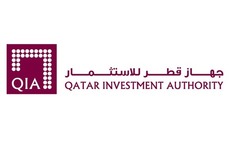
AVCJ at 25: Weijian Shan of PAG
Weijian Shan, chairman and CEO of PAG, made his name in private equity turning around troubled companies for Newbridge Capital. Two bank deals helped open international investors’ eyes to the Asia buyout opportunity
"We didn't spend much time thinking about how private equity would evolve, it was more about how the Asian economy would evolve," says Weijian Shan, chairman and CEO of PAG. "At that time China, India and Southeast Asia were all about the size of Korea. Japan was the largest economy in the region by far but we knew China would become more important. We also knew that if these countries fixed their banking systems, they would come out of the recession."
These considerations underpinned investment strategy at Newbridge Capital in the late 1990s. Formerly a senior China banker with J.P. Morgan, Shan joined Dan Carroll as head of Newbridge's Asia operations in 1998, four years after the private equity firm came into being as a joint venture between TPG Capital and Blum Capital.
While they may not have paid much attention to private equity's growth trajectory, the Newbridge team left an indelible mark upon it. They specialized in supporting companies undergoing transition across a variety of industries, but are mostly readily associated with financial services and the turnaround of Korea First Bank (KFB) and Shenzhen Development Bank (SDB).
These deals, arguably more than any others, are responsible for putting Asian private equity in the spotlight. For the first time, global buyout firms recognized regional buyout opportunities and responded by deploying more resources in Asia and creating the industry as it is known today.
"We all knew it was significant because it was the first time that someone from outside Asia had taken over a major national bank in Asia," Shan says of KFB. "It was a failed bank and had been nationalized by the Korean government, so we negotiated to assume control."
Few others were willing to take a shot at reviving the lender. As Korea's credit crisis took hold and Moody's lowered the nation's credit rating, the IMF came in with a bailout package and also singled out two distressed banks that could be sold off: KFB and Seoul Bank. Months of negotiations ensued and Newbridge, the only private equity firm that participated in the auction, signed an exclusive memorandum of understanding for KFB in December 1998 and closed the transaction in early 2000. HSBC, meanwhile, was unable to reach an agreement with the government regarding Seoul Bank.
Anatomy of a turnaround
There were two main components to the restructuring process. First, Newbridge had to put in place a functional board, organized in accordance with international best practice, and appoint a professional management team to operate beneath it. Second, they had to create a credit culture, a tougher proposition because it meant recalibrating long-standing characteristics of Korea's financial sector.
"Before the Asian financial crisis, banking wasn't based on the creditworthiness and cash flow of the borrower but on government policy and relationships, and they got into so much trouble because loans went bad," says Shan. "In order to do real lending there has to be a culture at the bank - and at every stage of the lending process - for checking customers' creditworthiness. When thousands of employees have to be trained up, it is an enormous task."
KFB's non-performing loan (NPL) ratio stood at 30% in 1998. The Korean government carved out a large portion prior to Newbridge's investment and agreed to a "put back" clause covering the rest.
During the private equity firm's ownership period the ratio fell to less than 1%, while KFB's business model transformed from one driven purely by corporate lending to a predominantly retail banking approach. The latter was particularly important given that a failure to diversify subsequently saw other banks run into trouble. Newbridge exited its 51% stake in KFB in 2005 when Standard Chartered acquired the bank for $3.2 billion.
By this point, the private equity firm was already invested in SDB, which was in a similar state of distress but there was no government on hand to help soak up some of the bad loans. In 2004, the year before Newbridge acquired its controlling stake, the bank's NPL ratio was said to be 11.4%, although it later turned out to be twice as bad. SDB's capital adequacy ratio was also worse than the reported 2.3%, and well below the required 8%.
No less than 20 potential investors were approached concerning the asset, most of them strategic players, but Newbridge was the only party to express genuine interest.
While the gap between government-imposed interest rate spreads for loans and deposits ensure that Chinese banks virtually have a license to print money, this is meaningless in the absence of sustainable lending policies. "If you look at SDB it was much more broken than KFB but by then we had operated KFB for a number of years and were very experienced in risk management and credit culture," Shan says. "We were confident that as long as we could control the risk we could turn the bank around."
Other private equity firms invested in Korean and Japanese banks around the time of the KFB deal with varying degrees of success - Ripplewood, J.C. Flowers and Shinsei, Lone Star and Tokyo Star, Cerberus and Aozora, The Carlyle Group and Korea Exchange Bank - but Newbridge won plaudits for being the first to venture into the space. Such was the profile of the KFB and SDB transactions that Shan found people were, inaccurately, describing him as a banking specialist.
Transition management
Investments in other sectors may not have required such extreme turnaround efforts, but results came as a result of putting people on the ground and addressing business challenges. Newbridge and Blum Capital acquired Australian department store chain Myer for about $1 billion, half in equity, in 2006 and exited via a $2 billion IPO three years later. Speaking at the 2011 AVCJ Forum, Ben Gray, a managing partner at TPG who was part of the Newbridge team that worked on the deal, said the investment generated a 6x return - 4.5x from operational involvement, 0.5x from debt payouts and 1x from a property deal.
Shan also highlights a $350 commitment to Chinese PC manufacturer Lenovo Group in partnership with TPG and General Atlantic in 2005. The capital was used to support the $1.75 billion acquisition of IBM's PC division but Newbridge's familiarity with both parties meant its involvement went further. "TPG had been looking at IBM's PC business for a long time and Newbridge had a good relationship in China with Lenovo," Shan says. "All the stars were aligned and we did this deal because Lenovo wanted to work with us on integrating the IBM business."
Now installed at PAG and investing the firm's $2.5 billion debut private equity vehicle, Shan claims that after 14 years in the industry he has yet to emerge victorious from an auction situation because he's never participated in one. Moving from a global firm like TPG, which fully absorbed Newbridge in the early 2000s, to a regional outfit, the intention was always to carry over certain strategic tenets, including a focus on larger transformational- or operational-type opportunities that don't appeal to the mass market. Pre-IPO deals are generally off-limits.
"We rarely encounter competition for what we do, back when we were doing SDB or now," Shan says. "If you do pre-IPO there is a lot of competition because it's based on price. If you are doing transformational buyouts it is more about your ability to help the target achieve its objectives. You have to bring many more things than capital to the table, but you can also cut your own deal."
Picking winners
While PAG has an Asia-wide mandate, China remains the principal area of focus. This is driven by a combination of fundamental and cyclical factors. Private equity in China remains a fraction of the public markets and banking sector capital pools, as well as accounting for a smaller percentage of capital than in America or Europe, which suggests there is room for greater participation.
The challenge is picking the right company in the right industry. Shan notes that there is overcapacity in nearly every industrial sector, from steel to cement to aluminum, as well as in a number of downstream sectors such as auto manufacturing. Consumption, which makes up 35% of Chinese GDP compared to 70% in the US, is seen as a better bet, but understanding the structural nuances woven into the industrial fabric of the country is not easy.
"We are seeing a faster slowdown in electricity consumption than GDP growth because heavy industrial sectors are large consumers of electricity and they are slowing much faster than the rest of the economy," says Shan. "On the other hand, industries such as mobile handsets and pharmaceuticals are experiencing rapid growth. When deciding whether to invest in a firm, the first thing we look at is how it is differentiated from the competition."
The cyclical factor that favors the likes of PAG, meanwhile, is weaker economics. As the West continues to grapple with the effects of the global financial crisis, private equity in China has been buffeted by a decline in the pre-IPO market over the last 18 months and tighter bank lending policies. Valuation expectations, driven up across the board by lucrative public market exits, are now moderating; companies that embarked on ambitious capital expansion plans with a view to a quick IPO now find the window has closed and banks are less willing to be flexible on loan repayments.
The global financial crisis didn't hit emerging Asia as hard as the regional apocalypse of 1997-1998 - and no one is expecting another spate of distressed bank deals - but opportunities are emerging for private equity.
"Money is tight, valuations have come down and you find that many firms are running into difficulty," says Shan. "History has proven that this is as good a time to invest as ever. It may last for a little while because the global economy is so interconnected it's hard to see how the market can go back without major problems being resolved."
Latest News
Asian GPs slow implementation of ESG policies - survey
Asia-based private equity firms are assigning more dedicated resources to environment, social, and governance (ESG) programmes, but policy changes have slowed in the past 12 months, in part due to concerns raised internally and by LPs, according to a...
Singapore fintech start-up LXA gets $10m seed round
New Enterprise Associates (NEA) has led a USD 10m seed round for Singapore’s LXA, a financial technology start-up launched by a former Asia senior executive at The Blackstone Group.
India's InCred announces $60m round, claims unicorn status
Indian non-bank lender InCred Financial Services said it has received INR 5bn (USD 60m) at a valuation of at least USD 1bn from unnamed investors including “a global private equity fund.”
Insight leads $50m round for Australia's Roller
Insight Partners has led a USD 50m round for Australia’s Roller, a venue management software provider specializing in family fun parks.







